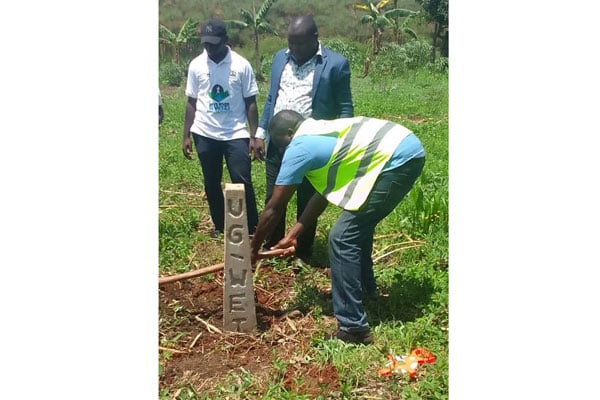Prime
What does right to water entail?

Katja Kerschbaumer
What you need to know:
- Access to clean and safe water is essential for the realisation of a dignified life.
The Ministry of Water and Environment in collaboration with partners held the seventh Uganda Water and Environment Week (UWEWK) from March 18 to 22, under the theme “Rethinking collective action and innovative solutions to water, environment, and the climate change crisis in Uganda”. Access to clean and safe water is essential for the realisation of a dignified life.
The right to water encompasses several essential components, such as the accessibility of water, which refers to the ease with which communities can obtain sufficient and safe water without discrimination. The availability of water involves adequate and consistent supply of water for both personal and home use. The right to water also includes the right to an adequate quality of water, which must be safe, clean, and free from contaminants.
Looking at the legal context, the right to water belongs to the family of social, economic and cultural rights. The other family of rights, the civil and political rights are typically more clearly defined and easier to interpret and enforce. Social and economic rights are more abstract, and there is currently no well-developed jurisprudence on many of these rights, let alone defined ways of enforcing them.
The Universal Declaration of Human Rights and the European Convention on Human Rights were the first-generation human rights instruments and neither provides for a right to water, despite the fact that it is crucial to human life.
In 2019, the African Commission on Human and Peoples’ Rights published guidelines on the Right to Water in Africa which highlight the need to make water accessible for all since the African Charter on Human and Peoples’ Rights does not expressly include the right to water.
At the national level, the right to water is recognised in the 1995 Constitution of the Republic of Uganda (as amended in 2005) under its National Objectives and Directive Principles, Objective XXI which recognises the state’s responsibility to provide safe and clean water. This implies that the government and other stakeholders have a responsibility to ensure environmental conservation and sustainable development for the benefit of all citizens.
Courts have made judgments both at international and national levels that emphasise safeguarding the right to water. Noteworthy is the Gabcikovo-Nagymaros case, between Hungary and Slovakia, which was decided by the International Court of Justice in 1997. It was one of the first cases in which the International Court of Justice considered issues of International Environment Law in depth.
The court held that the protection of the environment is a vital part of the contemporary human rights doctrine, such as the right to health and the right to life itself, stating that damage to the environment can impair and undermine all the human rights. Additionally, in the case of Committee on Economic, Social and Cultural Rights v Argentina (2002), the court found that Argentina had violated the right to water of the indigenous people and ordered the government to take steps to ensure that they had access to safe drinking water.
In Uganda, courts have emphasised the importance of the right to water in Uganda’s legal framework and set important precedents in affirming the right to water as an essential human right. The courts have also made pronouncements that the government through its Ministry of Water and Environment, and the National Water & Sewerage Corporation has a duty to ensure that the water it provides to citizens is clean and safe.
Austria through the Austrian Embassy Development Cooperation in Uganda has had a long-standing relationship with the government by supporting projects aimed at advancing the right to water and sanitation, as well as access to justice. Austria together with Team Europe is committed to continue its partnership with the Government of Uganda and other stakeholders towards strengthening the implementation of the right to water, as well as the achievement of Sustainable Development Goal 6 to ensure an equitable and sustainable use and management of water resources and access to water for all.
In conclusion, while the right to water is universally recognised as a human right, more research and jurisprudence is needed to further clarify and shape the content of this right.
Dr Katja Kerschbaumer, the Head of Austrian Embassy Development Cooperation in Uganda




